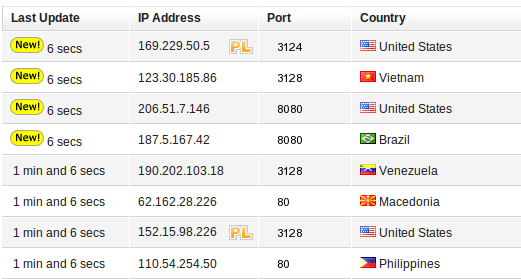In this digital era, the critical nature of online privacy and security is paramount. As we spend more time on the internet, from streaming our favorite shows to handling confidential matters, the dangers of revealing personal data have expanded greatly. One powerful solution that has developed to address these issues is a proxy server. These intermediaries can assist users in browsing the internet more anonymously, view information restricted by location, and improve their complete online interaction.
Proxy servers operate by serving as an intermediary between users and the internet, concealing users' IP addresses and redirecting traffic via alternative servers. This basic operation provides a range of possibilities, from improving security against cyber threats to assisting in data collection for market insights. However, not all proxy servers are created equal, and with different kinds accessible, including HTTP, SOCKS proxies, and transparent types, grasping their distinct features is essential. As we examine the growth of proxy servers, we will explore their benefits, potential risks, and how they can be leveraged for better online browsing and productivity.
Understanding Interceptor Servers

Proxying servers serve as middlemen between users and the internet, routing demands from clients to the targeted hosts. When a user makes a demand for a page, it first travels through the intermediary, which then relays it to the intended host. The target host processes the query and returns the content back to the intermediary, which in turn delivers it to the user. This method helps mask the client's location, offering a degree of privacy.
There are different types of intermediaries, each serving different functions. Some common kinds include HTTP relay, which are built for web data; SOCKS relay, which can manage any type of traffic; and transparent proxies, which don’t change requests as they direct them. Comprehending these distinctions is essential when selecting a intermediary for particular purposes, whether for online privacy, protection, or accessing geo-restricted information.
The utilization of proxy servers has risen due to their ability to improve internet security and safety. They can assist protect users from likely threats by concealing their true locations and securing data. As more individuals and businesses look for better means to secure their data, proxy servers are becoming an necessary instrument in modern browsing, facilitating a safer and more versatile internet experience.
Advantages and Risks of Proxy Servers
Utilizing proxy servers offers numerous benefits, notably in boosting online privacy and security. As browsing the internet via a proxy, users can mask their IP addresses, thereby making it more challenging for websites and potential attackers to monitor their online activities. Click to find out more is especially for individuals who emphasize their privacy or require a secure connection while using public Wi-Fi networks. Moreover, many proxies provide extra features such as filtering content and blocking malicious sites, contributing to a more secure online experience.
On the other hand, not all proxies are made equal, and there are built-in risks linked with their use. Free proxy servers are often flaky and may compromise users' security by recording their data or injecting ads into their traffic. Additionally, some proxies may be controlled by harmful entities seeking to harvest personal information. Users should be careful when picking a proxy service, making sure they opt for trustworthy providers that prioritize security and privacy to lessen these risks.
Furthermore, though proxy servers can boost browsing speeds by caching frequently used content, they may also add latency due to their directing processes. This can be a negative for users seeking optimal performance, particularly in activities that demand low latency, such as online gaming or streaming. It's essential to weigh these potential drawbacks against the benefits to make wise decisions about proxy usage for personal as well as professional needs.
Proxy in Various Sectors
In the realm of finance, proxy servers play a crucial role in securing sensitive data. Financial institutions often use these servers to ensure protected transactions and safeguard customer information. By routing their web traffic through a proxy server, banks can conceal their IP addresses, reducing the risk of cyberattacks and boosting online security. Additionally, proxies permit these organizations to track and manage internal network usage, ensuring compliance with compliance mandates and minimizing the possibility of data breaches.
In the media sector, proxy servers provide significant benefits for content accessibility and data management. Streaming services frequently adopt proxy technology to tackle geo-restrictions and allow viewers around the globe to access a broader array of content. By using proxies, media production firms can successfully gather data on viewer preferences and streaming trends, helping them tailor their offerings. Furthermore, these proxies can support collaborative workflows among remote teams by ensuring reliable access to shared resources.
For companies involved in online marketing and market research, proxies are invaluable for competitive intelligence and data scraping. Market analysts utilize proxy servers to anonymously collect data from competitor websites, analyze pricing structures, and monitor consumer behavior without revealing their identity. This not only boosts strategic decision-making but also helps in sustaining a competitive edge. Additionally, proxies enable businesses to conduct extensive market analysis without fear of IP bans, guaranteeing continuous data flow and consistent insights into industry trends.
